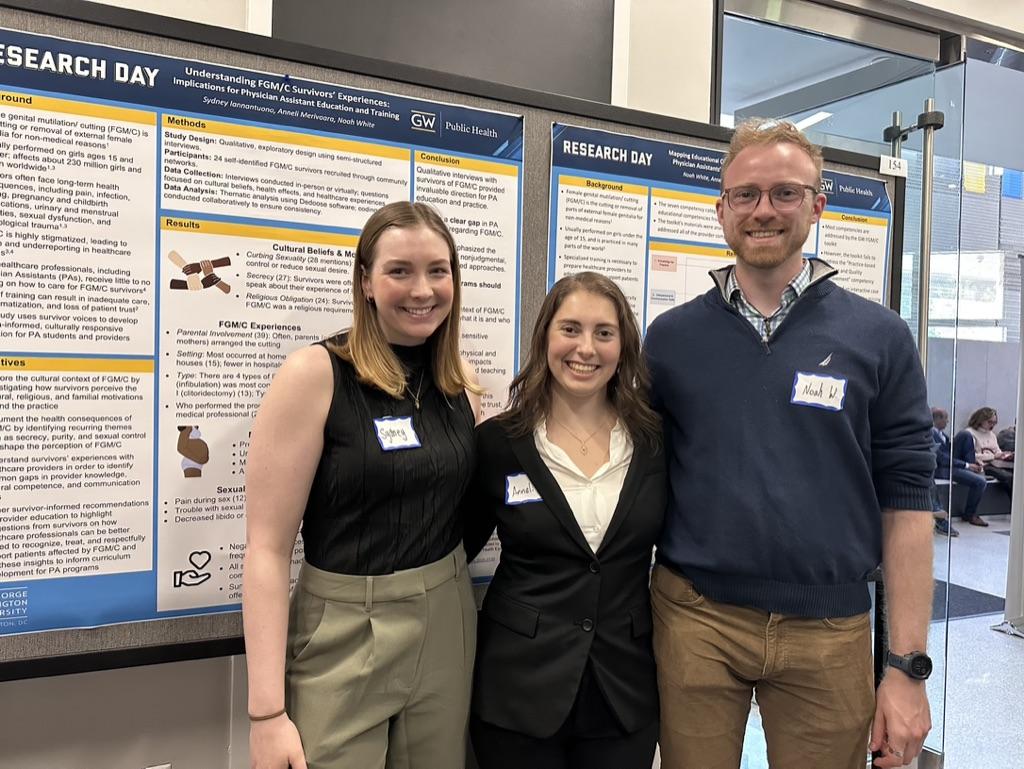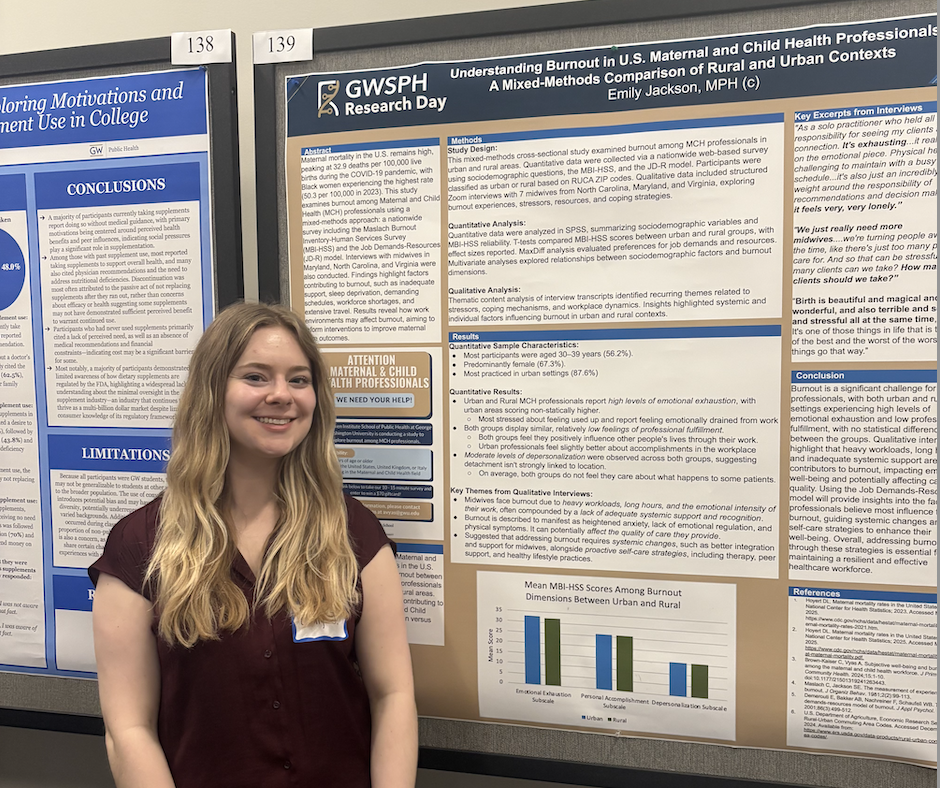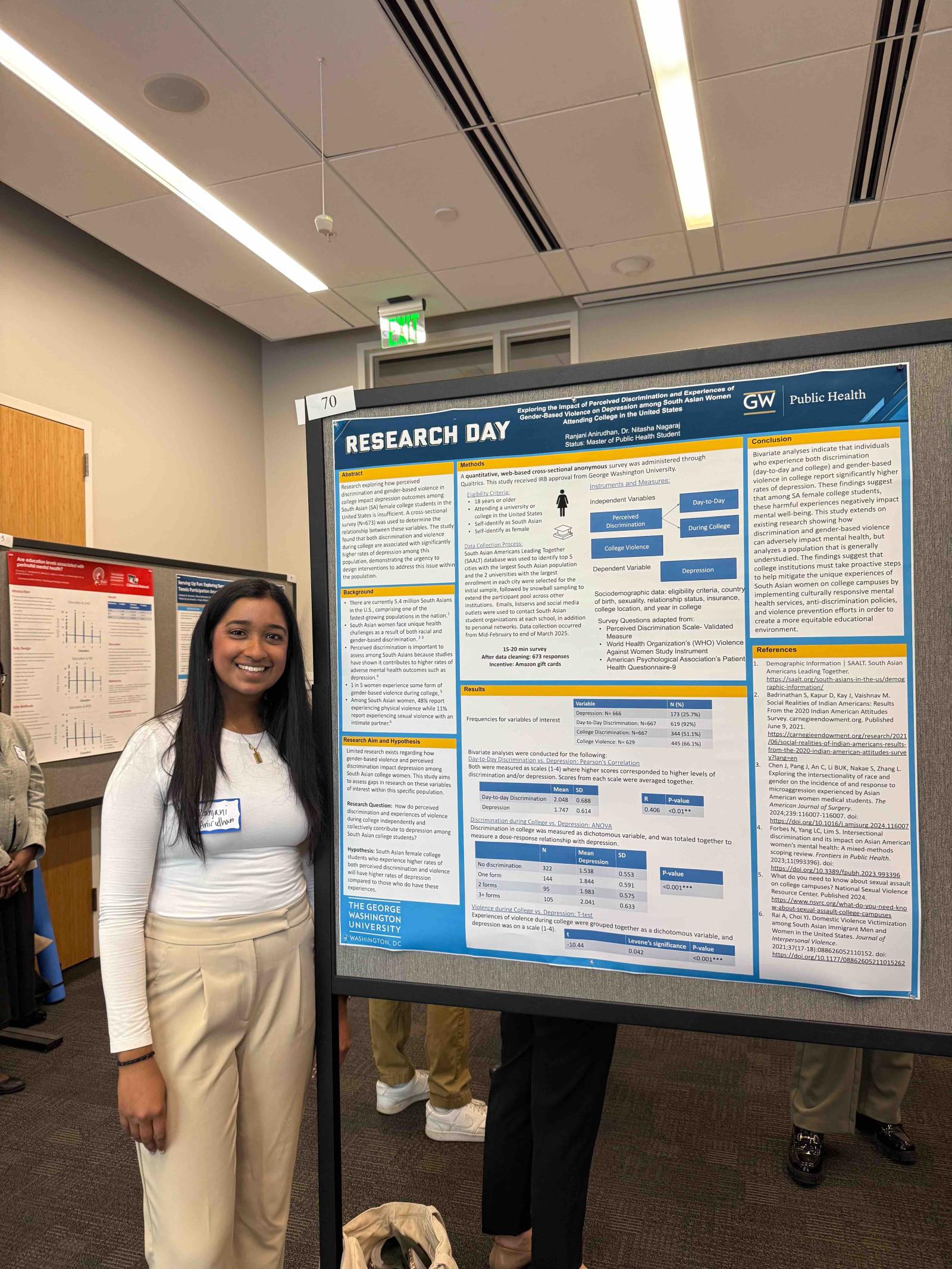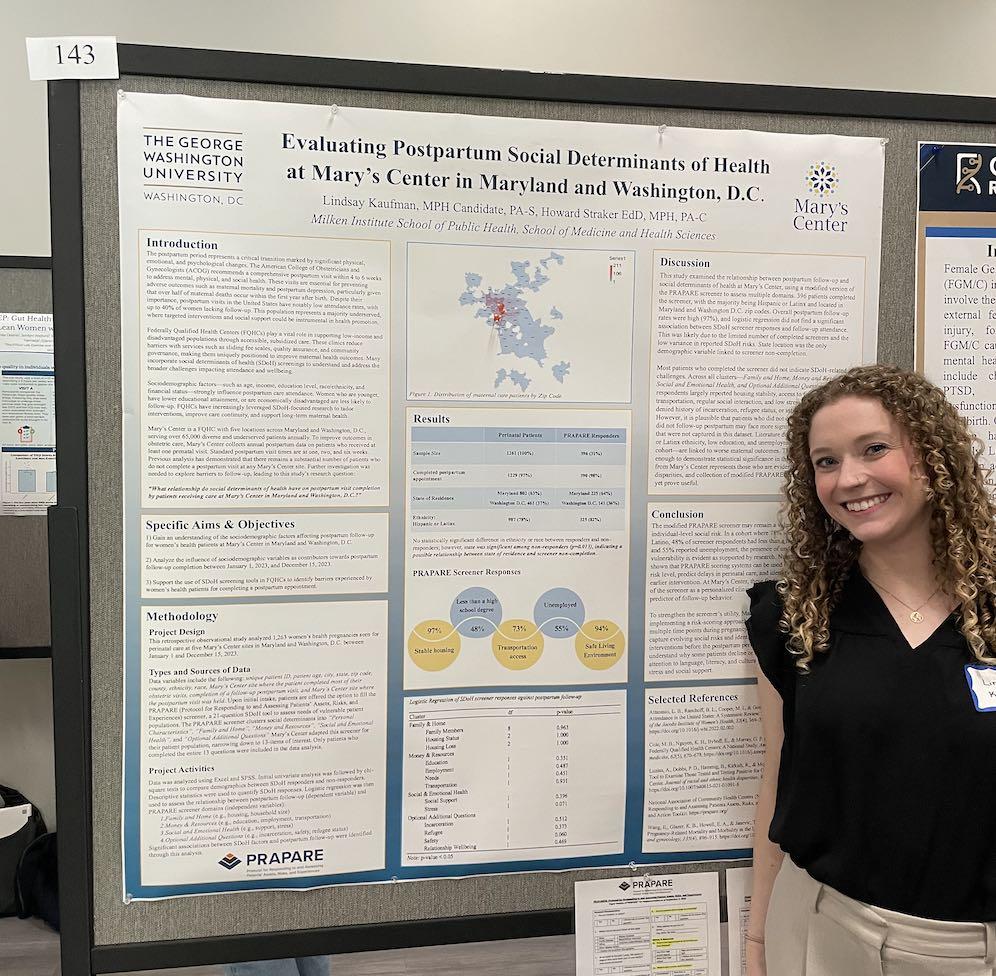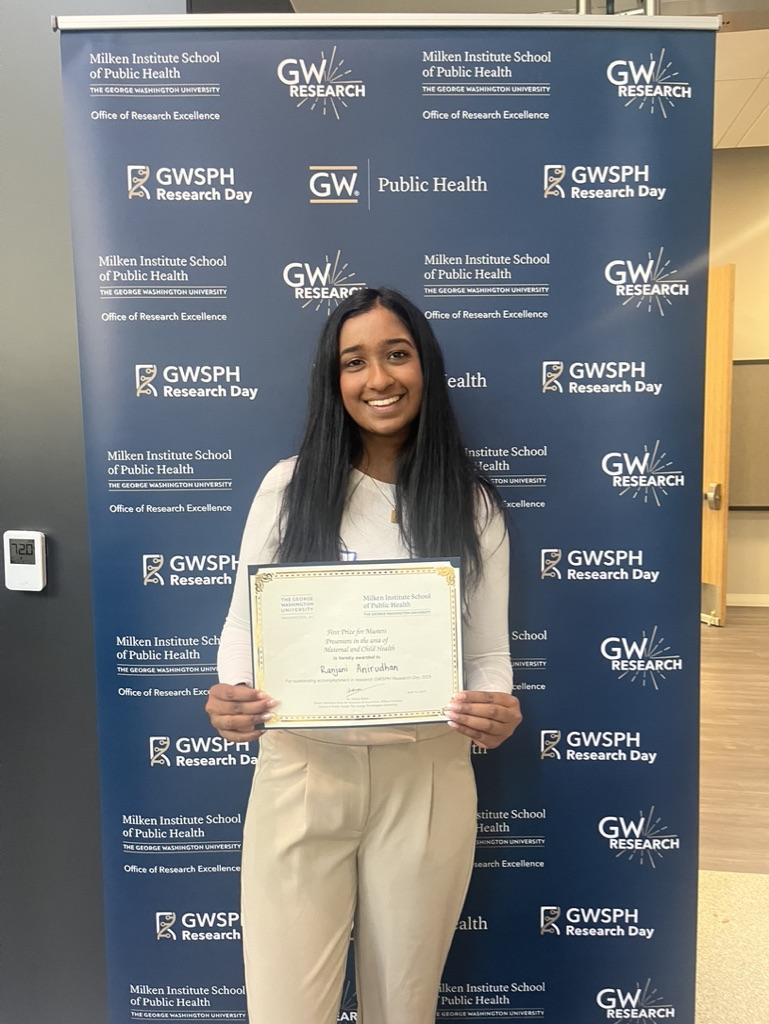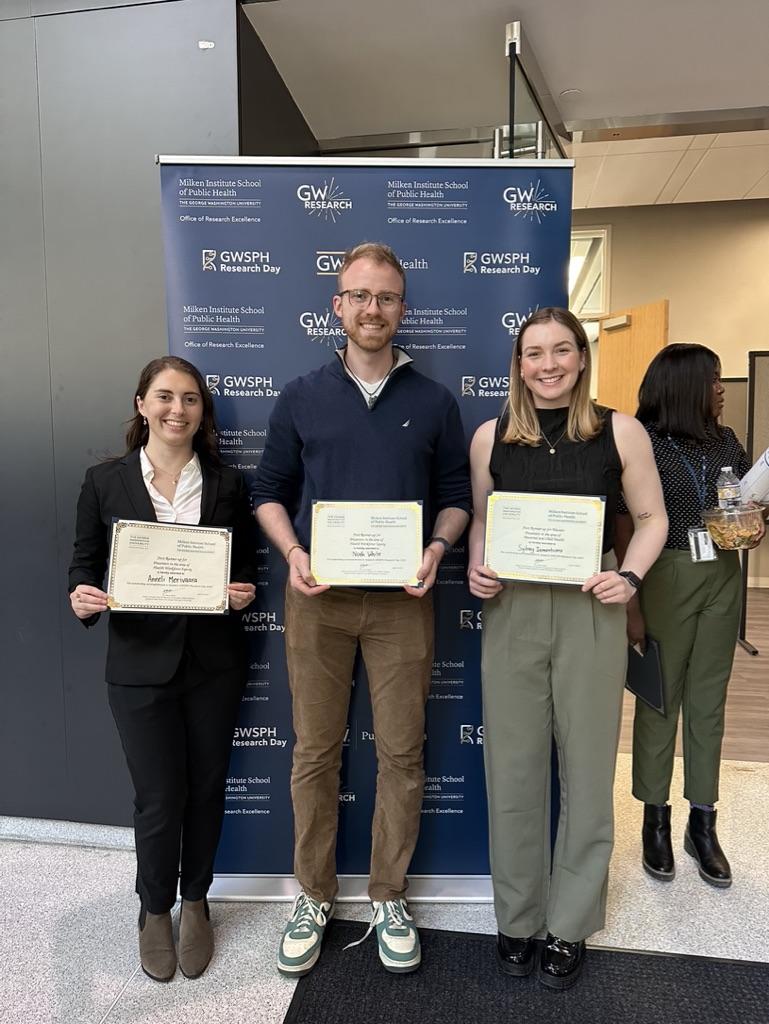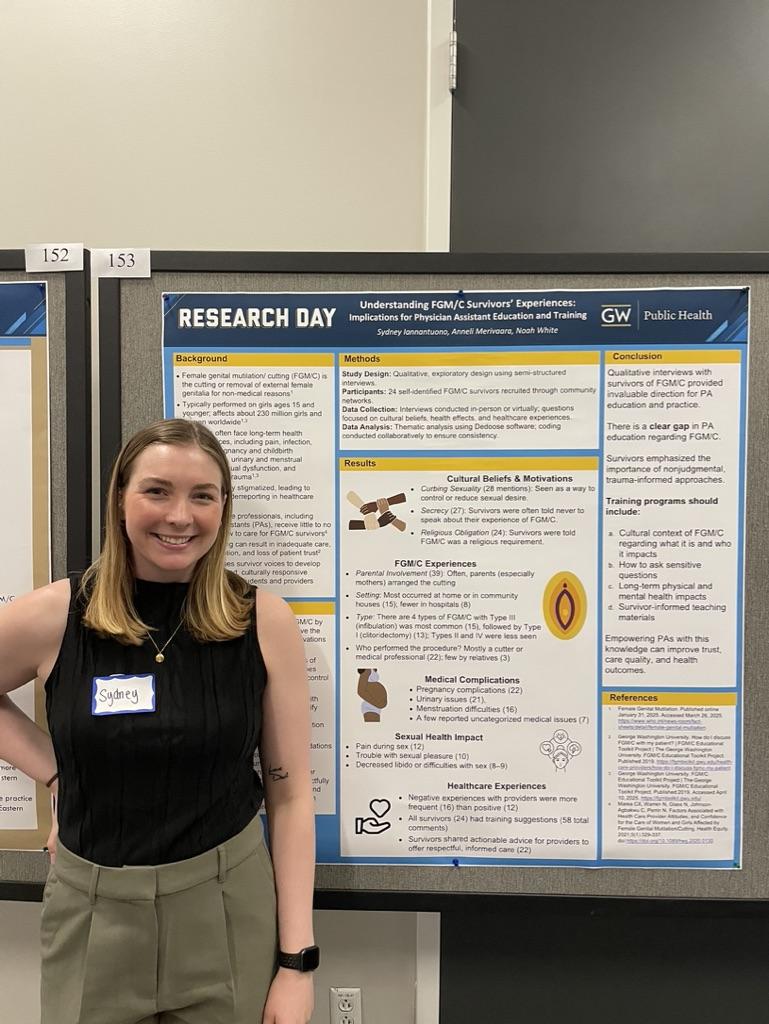Research Day
"Research Day is an event that celebrates the achievements of our students and their mentors. This event perfectly exemplifies GWSPH's commitment to providing students with opportunities to engage in creative endeavors and focused inquiry. It helps them develop skills in creative thinking, scientific reasoning, and analyzing information. Participating in Research Day enhances communication skills and helps students connect with people from diverse cultures. It is a great platform for developing leadership skills."
Lynn R. Goldman, MD, MS, MPH
Michael and Lori Milken Dean of Public Health
Professor of Environmental and Occupational Health
Congratulations to members of our MCH community for their outstanding work!
- Ranjani Anirudhan, MCH Center of Excellence Award
- Jucel Ann Arizabal, Center for Health and Healthcare in Schools Award
- Nisaa Chaudhry
- Katherine Cox
- Amal Hassan, Global Women's Institute Award
- Sydney Iannantuono, Mullan Institute for Health Award & MCH Center of Excellence Award
- Emily Jackson
- Shafia R. Khan
- Anneli Merivaara, Mullan Institute for Health Award & MCH Center of Excellence Award
- Lilli Silverston, Gil-Lebovic Center for Community Health Award
- Noah White, Mullan Institute for Health Award & MCH Center of Excellence Award
- Haley Williams
Student Experiences
Sydney Iannantuono, Noah White, and Anneli Merivaara reflect on their Research Day Experience
First Runner-up for Masters Presenters in the area of Maternal and Child Health
Iannantuono S.A., Merivaara A.M., White N.G.:Understanding FGM/C Survivors’ Experiences: Implications for Physician Assistant Education and Training
Conducting qualitative research on FGM/C survivors was an incredibly meaningful and rich experience. Working with such deep, personal narratives requires a high level of sensitivity, empathy, and responsibility, and our team reviewed each interview with the intention to amplify survivors’ voices. As we analyzed the data, we recognized the participants' strength and vulnerability to share their stories of pain, resilience, and hope for change. Collaboratively developing the codebook and working through themes in Dedoose allowed us to engage deeply with the themes within the interviews while practicing cultural humility.
This project enforced the importance of survivor-centered research in maternal and child health and highlighted how crucial it is to integrate lived experience into provider training, specifically for PAs. Winning runner-up for the MCH department award was not only an incredible honor, it was also a testament to the importance of qualitative research in advocating for better care and systematic change. This experience has shaped our perspective as future healthcare providers and public health advocates, reminding us that elevating historically marginalized voices is both our responsibility and a privilege.
Fitzhugh Mullan Institute for Health Workforce Equity Prize Runner-Up
White N.G., Merivaara A.M., Iannantuono S.A.: Mapping Educational Competencies: How Can We Improve Physician Assistants’ Abilities to Help FGM/C Survivors?
As part of our research on female genital mutilation/cutting (FGM/C), we explored how the GW FGM/C Provider Education Toolkit aligns with the competencies taught in GW’s Physician Assistant (PA) program. In doing so, we found a strong overlap, specifically in knowledge for practice and interpersonal and communication skills, matching almost all of the competencies. However, one major gap emerged under the competency of “Practice-Based Learning and Quality Improvement”, specifically surrounding PAs having the opportunity to apply knowledge to real-world, survivor-informed clinical scenarios.
To address this major gap, our team developed a survivor-centered case study grounded in the qualitative analysis of interviews with FGM/C survivors. This case study integrates the lived experiences of survivors into clinical training. It also equips PA students with tools to critically reflect on their practice and identify strategies for improvement in trauma-informed care. We are so grateful to win runner-up for the Fitzhugh Mullan Institute for Health Workforce Equity Prize, as it highlights the importance of developing a more comprehensive, compassionate, and culturally responsive provider education.
Ranjani Anirudhan reflects on her Research Day Experience
I had the incredible opportunity to present my Culminating Experience project at George Washington School of Public Health’s Research Day 2025, and I was thrilled to receive first place in the Maternal and Child Health Prize Category.
My study explored how perceived discrimination and gender-based violence during college impact depression among South Asian female college students in the U.S., a population that is often overlooked in mental health research. I designed and distributed a web-based survey using validated instruments to collect data from over 670 participants across the country. The findings revealed that day-to-day discrimination, discriminatory experiences during college, and violence are significantly associated with higher levels of depression, underscoring the need for culturally responsive mental health services, anti-discrimination policies, and violence prevention efforts on college campuses.
I am so grateful to have had the chance to share my work with my fellow peers and broader GW community. I want to thank my faculty mentor. Dr. Nitasha Nagaraj, as well as the Maternal and Child Health department, for supporting me throughout this project.
This was such a meaningful way to wrap up my MPH journey, and I am eager to continue advancing health and gender equity for underserved communities!
Amal Hassan reflects on her Research Day Experience
I was honored to receive First Runner-Up in the Gender Equality category at GWSPH Research Day 2025 for my poster presentation, based on my MPH Culminating Experience (CE). My research was a scoping review titled “Gender-Transformative and Intersectional Approaches in Community-Based Climate Adaptation Programs in Low- and Middle-Income Countries (LMICs): A Scoping Review of Best Practices.”
This project examined existing community-based climate adaptation and risk mitigation programs in LMICs that utilize gender-transformative and intersectional approaches. The review sought to answer the question: What existing community-based initiatives effectively integrate climate change considerations through an intersectional and gender-responsive lens?
Drawing on two rigorous systematic reviews and adapting the Intersectional Climate Justice framework originally developed by Amorim-Maia et.al., the study identified key principles of effective programs: centering marginalized populations in decision-making, tackling systemic inequalities, empowering local practitioners, integrating Indigenous knowledge, and enabling communities to lead change post-intervention.
Findings showed that effective programs consistently applied participatory methods, centered on Indigenous knowledge systems, and uplifted local scholars and community actors. However, the review also revealed a significant lack of comprehensive evaluations of such programs in LMICs, highlighting the urgent need for further research and action to promote gender-responsive climate adaptation.
Through this work, I sought to spotlight how community-based programs incorporate inclusive strategies that center the voices of women, girls, and marginalized populations most affected by climate change. Presenting at the annual GWSPH Research Day allowed me to engage with fellow researchers, faculty, and public health leaders about the importance of equity-driven, community-led solutions. I’m deeply grateful to the MCH Center of Excellence, my peers, and professors for their continued support throughout this journey.
Link: https://hsrc.himmelfarb.gwu.edu/gw_research_showcase/2025/sph/51/
Jucel Ann Arizabal reflects on her Research Day Experience
LEAP Students at Research Day
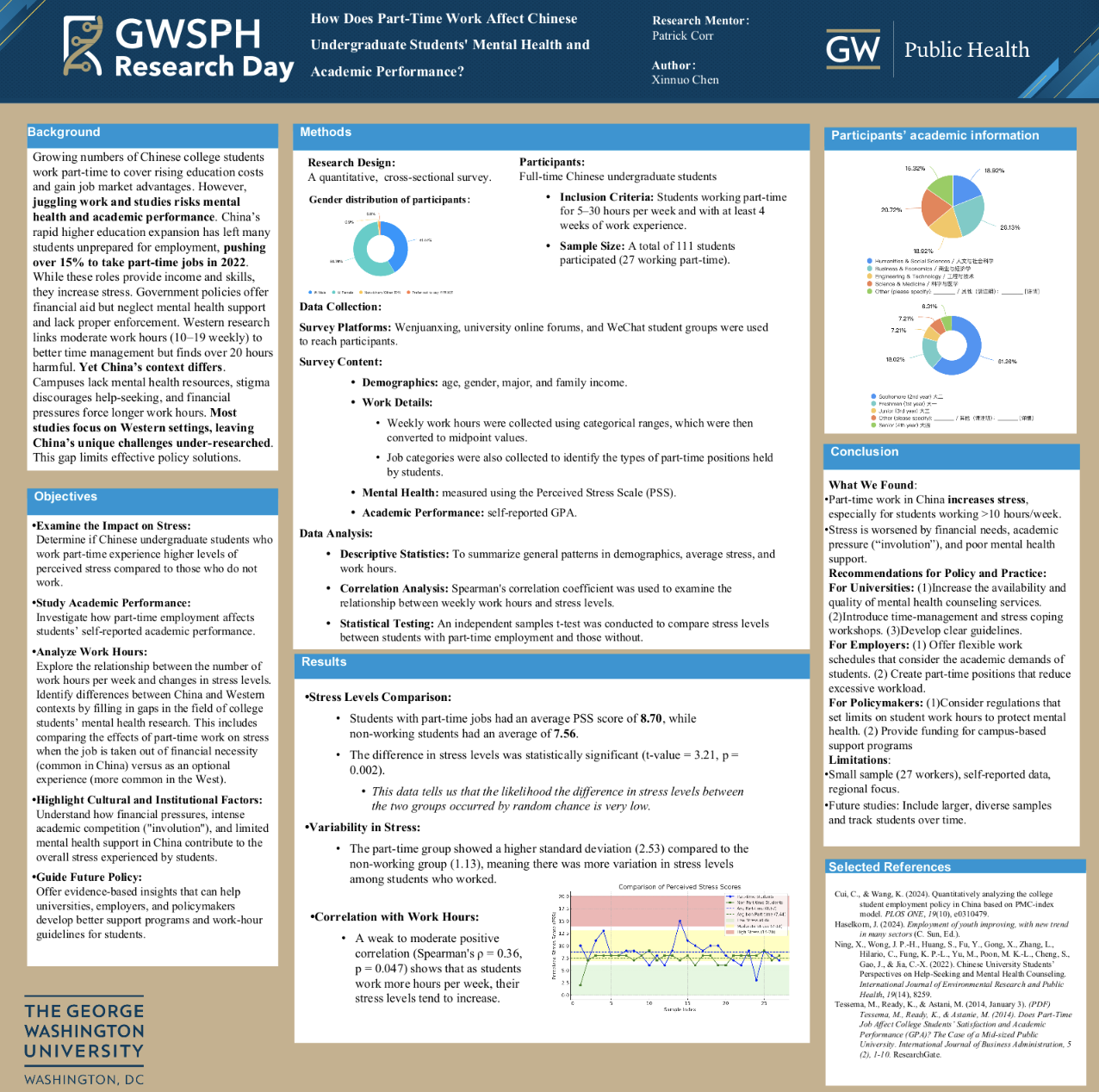
Xinnuo Chen
My project looked at how part-time work affects stress and academic performance among Chinese college students. I found that students who work part-time have higher stress levels, especially if they work more than 10 hours a week. I hope the findings can help schools and employers better support students.
I’m really thankful to Milken for giving me the chance to share my research and meet others with similar interests at Research Day—it was a great experience!
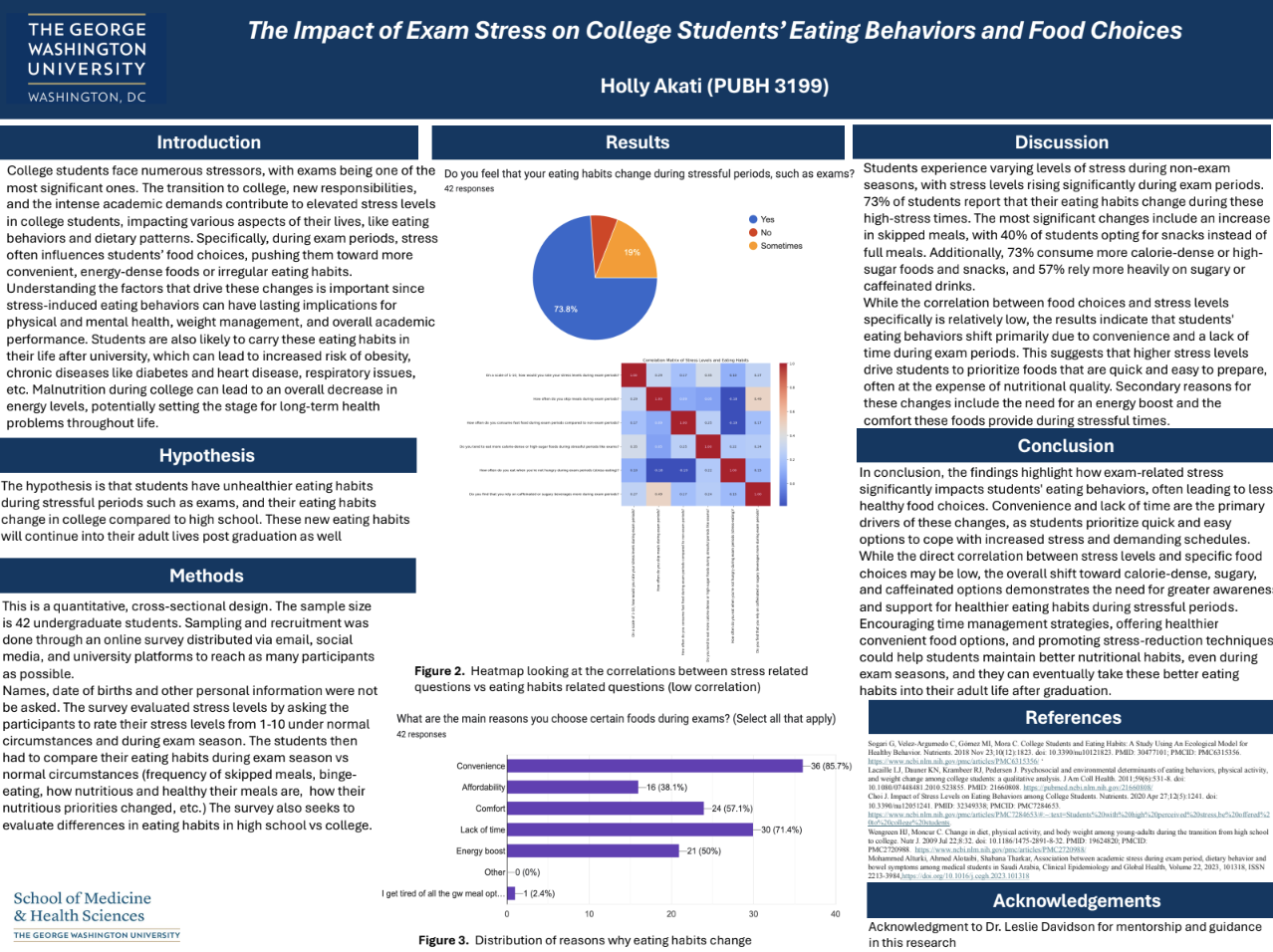
Holly Akati
The title of my project was "The Impact of Exam Stress on College Students' Eating Behaviors and Food Choices." I did the project alone for my research method class, and I picked this topic because I felt like a lot of college students tend not to focus on their nutrition as much as they should, especially because they have more responsibility over their diets compared to when they're home with their parents.
Student Poster Presentation April 16, 2025


